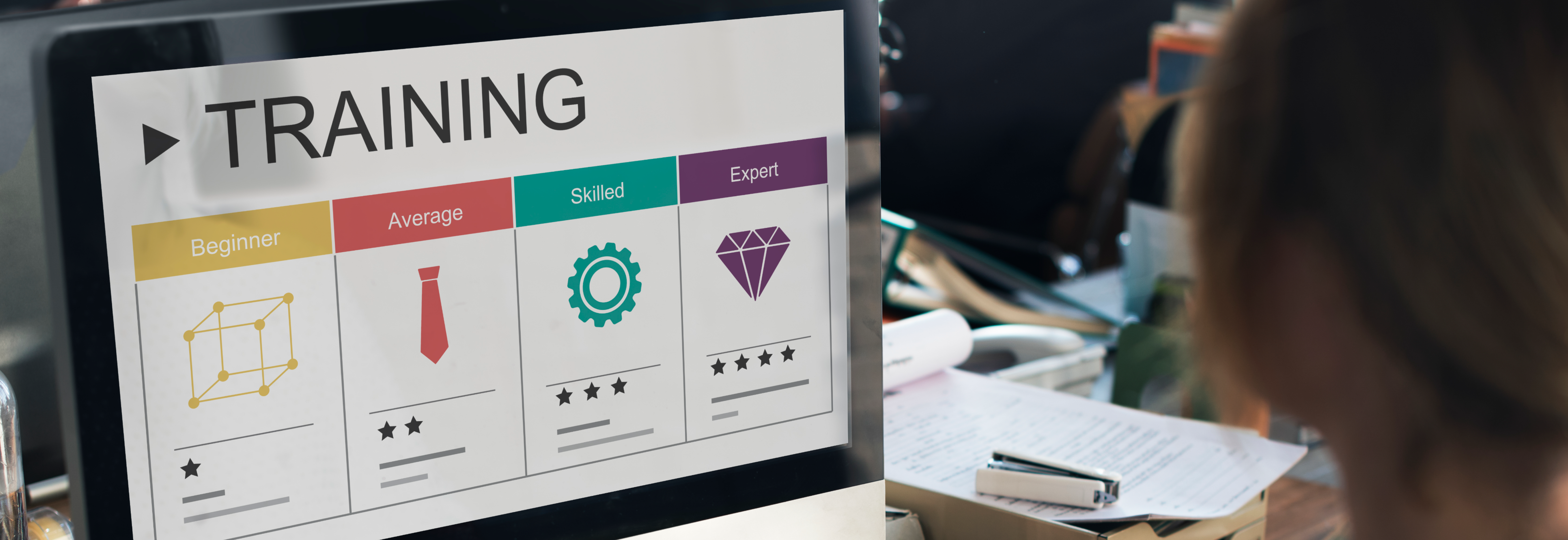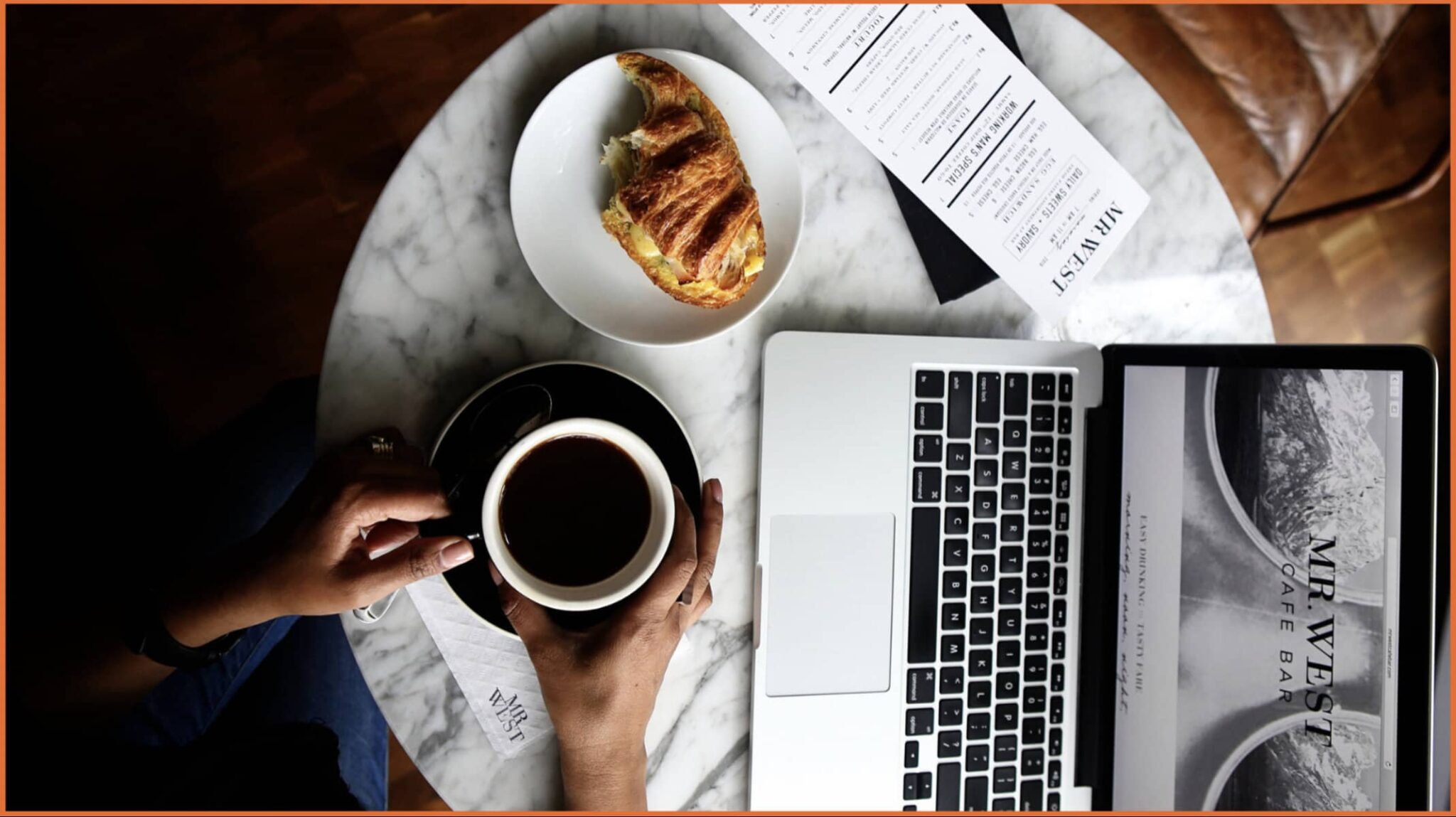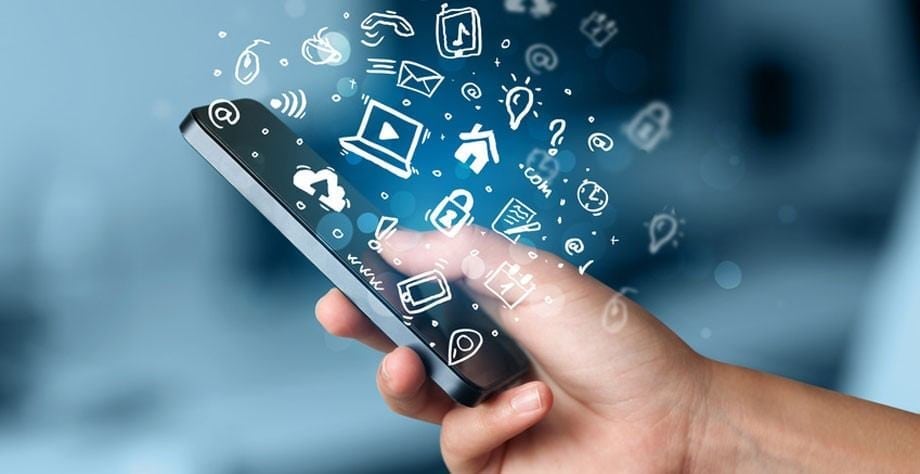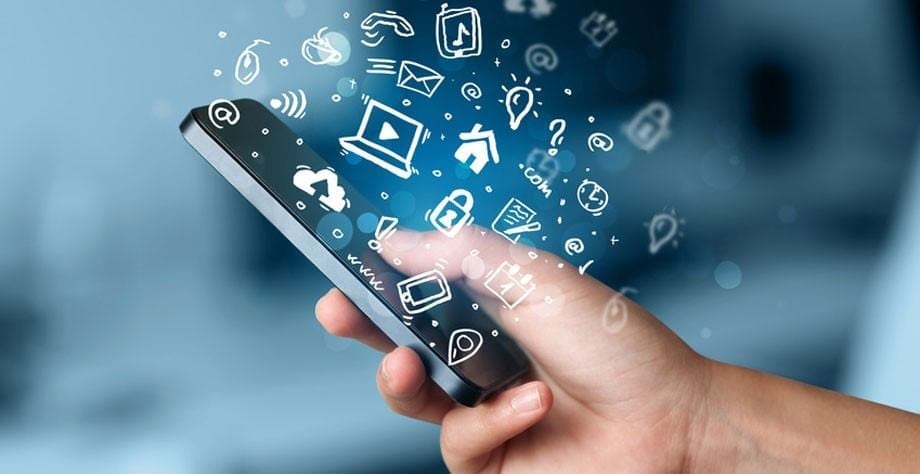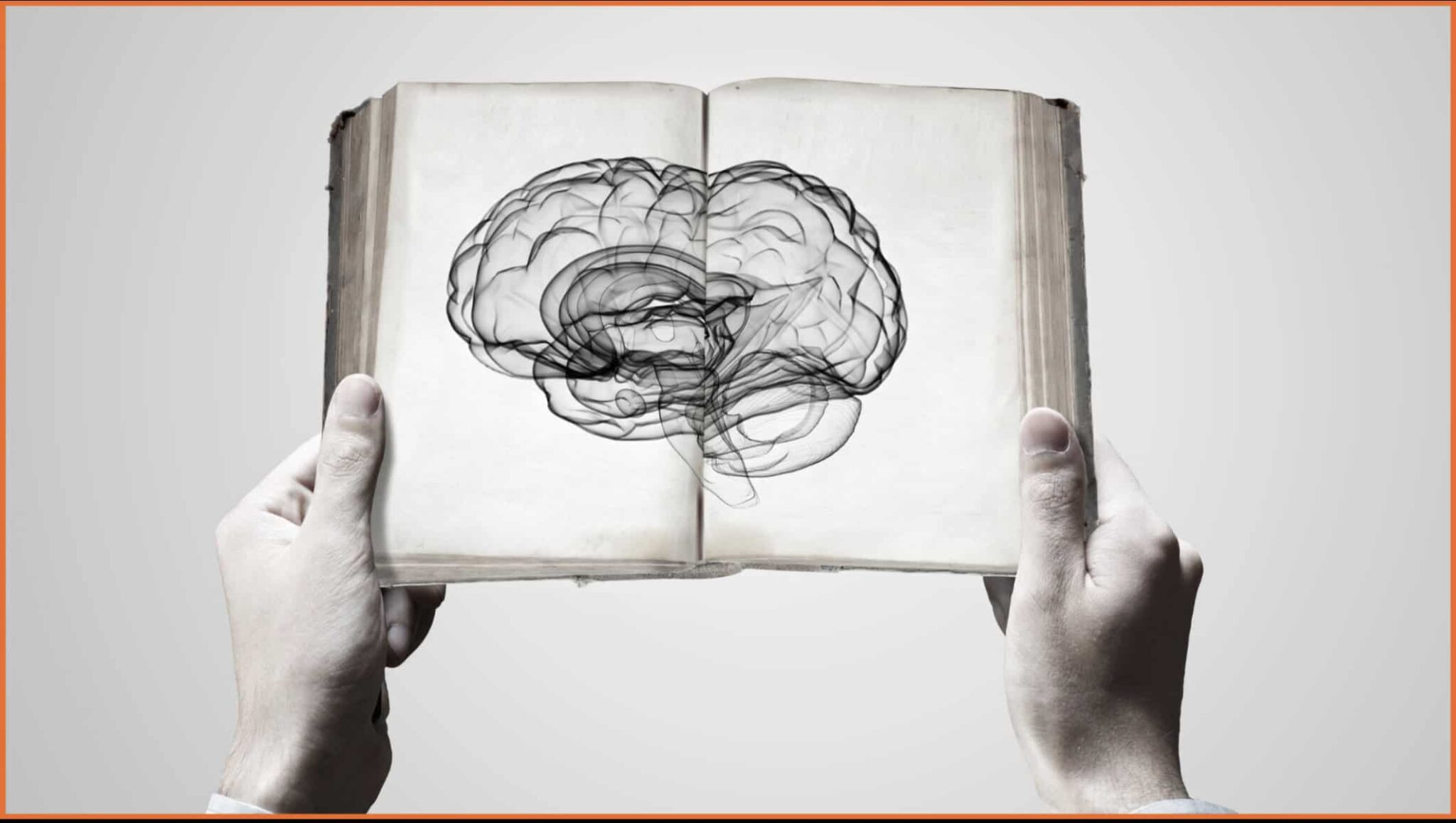Why a Learning Journey?
What’s the last skill that you learned? Whether it was how to play the guitar, or to knit, or use AI in your day to day work, or even how to manage conflicts, what was your learning process like? Did you master it in a single day? Chances are, the answer is no. Learning any new skill is a journey — a series of steps, practice, and even failures — before reaching a place of mastery.
However, in the L&D industry as it stands today, often there’s a drive to show results quickly. Teams are asked to deliver transformational change through one-day interventions in their organizations. But true, lasting behavioral change is rarely a one-day affair.
Learners face certain challenges before they can master a new skill. Given that they even attend the interventions, they may struggle with retaining the information from the workshop they attended, lack of immediate results, failures and setbacks, or maintaining motivation to keep trying, all making achievement of behavior change after a workshop a struggle.
These are very real challenges that learners face, and learning designs therefore should be built to account for them. Any learner goes through their own journey when learning a new skill. Our job as designers is to understand this journey and the challenges encountered, and build learning to support this journey.
One simple equation to keep in mind is: Knowledge x Transfer = Behavior Change
When we conduct one day interventions, we cap this process at knowledge, and miss the transfer piece entirely. So what are the things we can do to ensure learnings go from knowledge at the workshop stage to behavior change at the workplace? In other words, how can we ensure transfer of learning from the workshop setting to the workplace?
At FocusU we use the LTEM model developed by Dr. Will Thalheimer to design learning because it breaks down how learning happens, and therefore gives us a clear understanding of what elements we need to include in the design to ensure learning is happening and getting transferred to the workplace.
Below is a table which shows each tier of the model and what options we have for each tier to include in a learning journey which increases the chances that learners will be able to get to a stage where they can comfortably practice their new skills at work, thereby achieving behavior change.
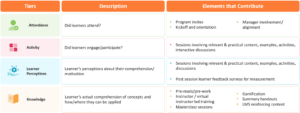
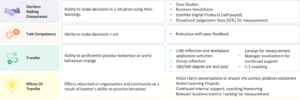
The Challenge of Retention of Knowledge
Learners may find it difficult to remember things they learned during their workshop. They often need extra support to help them remember these takeaways and actionables afterwards.
Post session handouts and reinforcement content on the LMS allow learners to recall their key learnings as and when they want.
Adult learners bring a wealth of personal and professional experience to any new learning. Reflection questions on the LMS help them connect new information with what they already know, which is a core principle of adult learning theory. By prompting learners to think about how the new skills or concepts relate to their own experiences, they’re encouraged to retrieve what they’ve learned and fit it into their existing knowledge. For example, if a learner is working on leadership skills, the reflection questions might prompt them to think about past leadership challenges they’ve faced, how they approached them, and how the new skills could offer a different solution. This process of linking new information with past experiences makes the learning more relevant, helping it stick and increasing the likelihood of long-term retention.
The Challenge of ‘Where Do I Start?’
Learners often struggle with the uncertainty of where to begin when tackling a new skill, feeling overwhelmed by its complexity and unsure how to make meaningful progress.
By designing workshops to be experiential, involving a lot of activities, case scenario discussions and role plays for practice along with feedback opportunities, we allow learners to immediately see how they can apply their skills. We provide them space to try out a new skill a few times, and start to build a sense of self-efficacy, which is crucial for any long-term behavior change. Here is an article about this intriguing concept of self-efficacy if you care to read more about it!
Further, simple application activities that outline specific behaviors or actions provide learners with a clear starting point, helping them gain confidence and immediate, practical experience with a new skill. Our LMS application activities do exactly this. Using the STAR framework (Situation, Task, Action, Result) to report on these experiences on the LMS adds structure, guiding learners to reflect on what they practiced, the steps they took, and the outcomes they achieved.
The Challenge of Motivation & Accountability
Learners are often bogged down by their daily work tasks to spare more time for learning activities. As designers, we need to help them see the tangible and immediate benefits of the efforts they would need to put in.
Program invites include components of WIIFM (what’s in it for me?) which answers the learner’s question of ‘why should I attend this program’.
We also provide a kickoff session which does more than introduce the program and agenda – we try to ensure that managers of the cohort are part of this session so that they are aligned to the behaviors which their teams should be able to exhibit as a result of the program, and therefore are then able to encourage and support that practice in the work environment after the workshop ends. This also acts as an accountability structure or added motivation for learners to practice new skills / behaviors once they leave the workshop setting.
The workshops themselves are designed and delivered in a way which is interactive and experiential, and include relevant case scenario discussions and business examples – in other words, learning sessions are contextualized. This ensures that learners are motivated to actively participate in sessions, which enhances chances of retention.
Our group reflection sessions post the workshop act as an accountability structure as well. At the end of the workshop, learners are asked to shortlist the actionables they will practice at work, and are told that they will come back for a group reflection session after a week or two to discuss this attempt and share any obstacles or challenges they faced.
The Challenge of Setbacks & Lack of Immediate Results
Practicing any new skill for the first time almost guarantees obstacles, challenges, and setbacks. It takes continuous effort and course correction to get to mastery and behavior change.
Our group reflection sessions are a space for learners to discuss their challenges and seek the support and troubleshooting they need to course correct. It is a form of ongoing support, and also promotes peer learning – we often see in these sessions that others from the cohort step in to share their advice and ideas with each other as well.
Manager involvement from the start also allows for continuous encouragement and support in the workplace setting for learners to get immediate feedback and course correct as they practice.
Thus, FocusU learning journeys leverage an understanding of the process of learning, and provide learners with the support and structure they need to ensure learning is carried forward beyond the workshop, ensuring transfer of learning to the workplace, creating the opportunity for behavior change.


